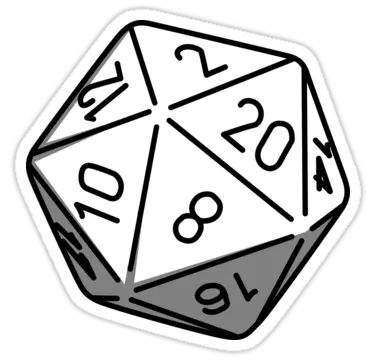Context: I’m missing a cutting board. So I wrote in our telegram family group: “Wo ist eigentlich unser zweites großes Schneidebrett hin?” (literally: “Where is actually our second big cuttingboard thither?”).
By using the modal particle “eigentlich” I insinuate that something is oddly off and express an emotional state of curiousity and/or mild discontent.
By adding “hin”, I notify that I ask because it is not where it is supposed to be and not because I don’t know where it should be.
Now I ask myself, how would I express this additional information in English?
Add a fuck or two.
Where the fuck is the fucking cutting board?
Where the fuck have you fucking little fucker taken the fucking cutting board?
Y’all motherfuckers better tell me where in the fuck you little fucking thief’s have taken the fucking cutting board,
The relative size doesn’t matter. The fact that the cutting board isn’t in the approximate location is should be does. Adding in a bunch of cuss’ will express how seriously concerned you are. Get a little more personal and offensive with the cussing will probably speed up the answers, but also get them to hate you more. So use that sparingly.
But general cussing isn’t overall too damaging.
English is a highly indirect language when it comes to these sorts of statements. “Have you seen the cutting board?” Would indicate that it’s not where it should be. “Where is the cutting board” would be too much of a personal accusation. It’s the type of thing you would say to a child that had hidden it. “Where do you keep the cutting board” would be how you ask when you honestly don’t know, like if you’re helping a friend prepare dinner.
German Modalpartikeln are rather unique to the language, so really hard to translate. To convey the same “feeling” you’d probably need to rely on other resources, like:
- synonyms;
- figures of speech;
- interjections;
- a more or less direct grammar;
- punctuation, emojis, etc.
For example, I feel like your sentence could be translated like “Our second cutting board is curiously missing. Does anyone know where it is?”. That “curiously” performing a similar job as “eigentlich”, and the indirect phrasing of the second sentence highlighting that you have no clue on where it is. It’s still missing the “it is not here” connotation of “hin”, but I guess that it’s good enough?
[Caveat lector: I’m not fully proficient in English, and certainly not in German. So… yeah.]
“is curiously missing” could also be replaced with other verbs that capture the unexpected / curious nature of its absence such as “has vanished” or “has disappeared”.
Those could work, too. It’s a good example of using synonyms to give different connotations - all those words convey that the cutting board is not there, but in different ways.
Vanished/disappeared is of course impossible literally but, colloquially, it definitely suggests something unusual happened without directly sounding accusatory. To me it reads a bit more lighthearted than other options. And I don’t think it would be misinterpreted in text form.
Dad would always say, “Who took the cutting board?” And not in a nice way lol.
You seem to be doing alright. How do you think you might improve that proficiency even further?
For written English it’s mostly finding succinct ways to express certain ideas and concepts. Both my L1 and L2 are Romance, so for me it’s way easier to remember those posh Latinate words than everyday stuff, and I’m often [over]relying on metaphors and other figures of speech, so I tend to get really verbose for nothing. My register also feels off - like I mix formal and informal speech, that often gives people the wrong “signs”.
Also the prepositions. I still need to actually think before using at/on/in, otherwise I’ll mix them all together.
For written German it’s the above on steroids. Plus I need more vocab, but that’s hard to get without “proper” usage; but that takes effort, and I’m perhaps a bit too prone to “oooh shiny! Time to learn Sanskrit!” and the likes.
It looks like the second cutting board has grown legs. Any ideas?
Also having grown legs is wrong for a cutting board. It’s literally an abomination, and that implies the cutting board being gone, as a state of affairs, is a wrong. That implies the place I’ve looked and not found it is the right place, which implies I know and have checked its home location.
In Germany, if something has grown legs, it’s implied that someone took it without asking or it has been stolen. At least that is how I am using it, or how I grew up using it.
Yes we have that in English too. But we also have the use of “stolen” to mean “borrowed without checking first”.
It implies zero or only the tiniest possible wrongdoing on the part or the one who took it. The use of the strong word “stolen” is meant as a sort of disjunction to eliminate any interpretation of mild annoyance.
It’s sarcasm basically, but without the tone. It’s like when I say “Uh I took one of your french fries when you were away from the table” and someone else says “oh you’re going to jail Bud”. It’s a sarcastic escalation of the severity, to signal the opposite: “It’s totally okay”
It can also mean that in English but generally not specifically, depending on context.
The key for all the top answers is that they imply the chopping board has moved of its own volition. This is what adds the subtle emotion to “Where is the chopping board?” without the stronger anger, hostility or suspicion.
You’re communicating that it’s not where it’s expected to be and that you’re concerned about the reason that as well as finding it.
“Yall, where the fuck the other cutting board at?”
That’s the southern version. Otherwise just “where the fuck is the cutting board?!”
Or perhaps as an alternative, “which one of you assholes stole my fucking cutting board?”
They said English, not American.
“Oi, where the bloody hell’s the other chopping board, mate?”
Spoken verbally, intonation can get you there. You can imagine this question asked perfectly calmly and innocently, “Where’s the cutting board?” “Oh it’s over there on the kitchen table.” “Ah.” Or you could imagine Batman growl screaming it in the Joker’s face. WHERE’S THE CUTTING BOARD?!?! TELL ME!!!
Now, in terms of phrasing, “Does anyone know where the cutting board is?” is probably fairly calm and innocent, “Who hid the cutting board?” is more accusatory/conspiratorial, “where’d the cutting board go?” implies you know where it was/should be, but it is not there, “What happened to the cutting board?” might mean it’s gone, or it might mean it’s damaged or in some adverse state, “Where the hell is the cutting board?” is probably getting a bit angry, “If I were a cutting board, where would I be?” means you’re either in a new kitchen and don’t know where the tools are stored, or it has been misplaced and you’re still calm about it…there are lots of options.
“Where has it gone?” = avoiding assigning blame. “Where did you put it?” = assigning blame.
Maybe “Does anyone know where the second big cutting board is?”
A slight change:
Does anyone know where the second big cutting board went?
The ‘went’ would reinforce the second point OP wanted, to clarify that they know where the board usually is, but not where it is now
Are you asking how to express this information in a utilitarian way, as in, how do you convey the information to be understood? Or are you asking how to express it in a poetic way? The use of thither makes me think you’re hoping to express this is a jokingly poetic sense.
In an everyday colloquial way.
The directional particel “hin” is a commonly used word in German without an exact equivalent in English. “thither” is the best approximation I could find, though it’s usage is completely different, of course.
“gone to” is probably a more accurate translation, because “thither” is such an obscure word in English it gives the wrong impression.
From Copilot:
I understand that you want to know how to convey the nuances of the German modal particles “eigentlich” and “hin” in English. Modal particles are words that are used in speech to convey extra emphasis or emotion, without any real grammatical function. They are very common in German, but not so much in English.
There is no exact translation for “eigentlich” and “hin” in English, but you can use some words or phrases that have a similar effect. For example, you can use “actually”, “really”, “just”, “after all”, “anyway”, “by the way”, “in fact”, “well”, etc. depending on the context and the tone you want to express.
In your case, you could say something like:
Where did our second big cutting board go, anyway?
Where is our second big cutting board, really?
Where did our second big cutting board end up, by the way?
Where is our second big cutting board, after all?
These sentences imply that you are curious and/or slightly annoyed about the missing cutting board, and that it is not where it should be. Of course, the exact meaning and tone may vary depending on how you say them, and how the listener interprets them.
This sort of demonstrates why you shouldn’t use AI to translate anything longer than a word.
I think the most direct translation in this context would be “Where on earth is…” (or more extreme) “Where the hell is…”
These inserts add almost exactly the same connotations you describe for “eigentlich”, though perhaps also with the implication that you have spent some time looking for it already
Add an expletive. Example “where’s the fucking cutting board?”
Where the fucking fuck is the fucking fuck? Fuck!
Looks like the cutting board didn’t get put away last time it was used, does anyone know where it ended up?
“Who’s nicked the cutting board?” Indicates that it is not in its proper place and makes a (light-hearted) accusation of theft to indicate that it shouldn’t be anywhere else.
If spoken, heavily dependent on tone of course.
As others have mentioned, cursing is is a wonderful way of expressing emotions
“Where has the second cutting board gone?”
This indicates that it’s not where it’s supposed to be, or at least not where you expected it to be and you’re looking for it. I can’t say for sure as I don’t speak German, but in English the “emotional state” you refer to is pretty clear in the context.











